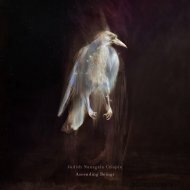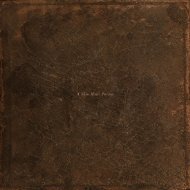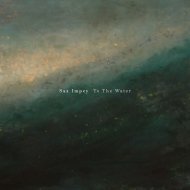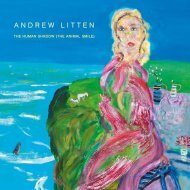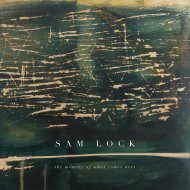Samuel Bassett 'The Great Squall'
Online catalogue for the exhibition 'The Great Squall' by Samuel Bassett at Anima-Mundi
Online catalogue for the exhibition 'The Great Squall' by Samuel Bassett at Anima-Mundi
You also want an ePaper? Increase the reach of your titles
YUMPU automatically turns print PDFs into web optimized ePapers that Google loves.
The first time I met <strong>Samuel</strong> <strong>Bassett</strong> was at Tremenheere,<br />
a sculpture garden in his native Cornwall. I liked him<br />
straight away. Most ar tists tend to be a bit buttoned<br />
up, but Sam was easy to talk to. With his broad grin<br />
and his boyish good looks, he could have been the<br />
lead singer in a garage band. The next day, I went to<br />
see him in St Ives, a few miles from Tremenheere. “I<br />
really hope I like his ar t,” I thought, as he led me into<br />
his studio. There’s nothing worse than liking someone,<br />
then finding you can’t stand their work.<br />
The small room was full of paintings. Big canvases, six<br />
feet across, stacked in piles against the walls. Sam dug<br />
out a few out to show me. I was amazed. This was like<br />
nothing I’d ever seen before, yet I recognised it straight<br />
away. You know how the best music sounds unique, yet<br />
strangely familiar? Well, it’s the same with painting. A<br />
true ar tist creates his own world - but once you step<br />
inside it, it feels as familiar as your own.<br />
The people in <strong>Samuel</strong> <strong>Bassett</strong>’s paintings are precise<br />
and delicate, etched with draughtsman-like finesse.<br />
The forces that surround them are enormous, brutal,<br />
elemental. His characters are submerged in vast dark<br />
seas, battered by savage storms. He attacks the canvas<br />
with angr y splashes of vivid colour. The fragile figures<br />
in his paintings often look a lot like him.<br />
It usually takes an ar tist a lifetime to find their own<br />
voice. Sam has found his already, and that’s what<br />
gives these pictures their raw power. He speaks from<br />
the hear t, about the things that move and trouble<br />
him. He paints the language of dreams and memor y.<br />
His paintings describe his hopes and fears. There<br />
are echoes of others ar tists in his work (Bacon,<br />
Baselitz, Schiele…) but these fleeting similarities are<br />
coincidental. His work is utterly his own. His ar tistic<br />
training has given him a master y of paint and an eye for<br />
detail, but he hasn’t been stifled by ar t histor y. There’s<br />
nothing self-conscious about his work, no attempt to<br />
be like or unlike other ar tists. It’s autobiographical,<br />
expressionistic. It’s about the way he feels about<br />
the world.<br />
I met Sam again in London, a few months later, at the<br />
Saatchi Galler y, where he was showing a selection of<br />
his work. Talking to him again, I realised I’d slightly<br />
misjudged him. I realised his happy-go-lucky attitude<br />
was only par t of who he was. It wasn’t the whole<br />
stor y, of course it wasn’t - the paintings told you that.<br />
They had that sense of human suffering which all great<br />
ar tists share. Looking at these paintings made me see<br />
him in a different light. There was some sadness behind<br />
that broad grin, some suffering behind that breezy<br />
manner. You could hear it in his laughter. You could see<br />
it in his eyes.<br />
He was man enough to admit that life’s experiences<br />
often overwhelm him. A lesser ar tist shirks crisis. Sam<br />
confronts it in his painting. He paints the good times<br />
and the bad times. Whatever happens in his life, it<br />
happens on the canvas, too. Painting is his secret diar y,<br />
his confessional, his raison d’etre. ‘For me, making ar t<br />
is a need and a must,’ he says. Look at the paintings.<br />
It’s all there.<br />
<strong>Samuel</strong> <strong>Bassett</strong> was born in St Ives, in Cornwall, in<br />
1982. If you already know Cornwall, you can skip this<br />
1






